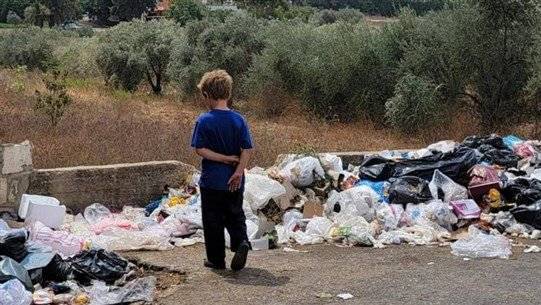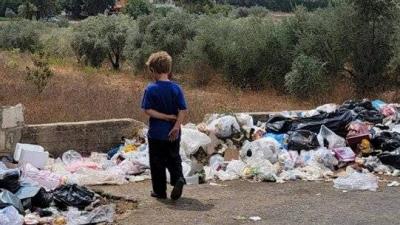Rabies has resurfaced in Lebanon, a disease that had long disappeared. However, the return of waste to the streets, along with stray dogs, has brought one of the most dangerous diseases back to the forefront. Rabies has no cure, and its outcome is certain death.
Recently, a child, M., has been on a ventilator, with his family awaiting his imminent death. The child contracted rabies from a dog bite in his home in a southern village. There is no escape for the one-year-old but death, raising the number of child fatalities from this disease in Lebanon to two within two months. This figure has been announced, yet the Ministry of Health has not paid significant attention to it. It continues to treat the issue of stray dogs and their dangers as a passing phase, despite being fully aware of the imminent threat to families posed by this phenomenon, which some describe as "the killer living among us." If it weren't for the gravity of the situation, the ministry would not have rushed to secure vaccinations after a months-long absence.
The child's family, consisting of ten members, is living in anxiety, as symptoms of "aggression" have begun to appear in some of them. They would not have discovered their infection with this disease if it weren't for child M.'s aversion to water, which, according to medical sources, is one of the symptoms of rabies.
About a month ago, the family pet bit the child and several family members. They did not take the matter seriously and did not seek the rabies vaccine, believing that the dog was "domestic," even though they were aware that it occasionally interacted with stray dogs that have been prevalent among the garbage on the streets these days. Symptoms of rabies began to appear in the child days ago, prompting an urgent transfer to Rafik Hariri University Hospital, where he was placed on a ventilator, waiting for his death within two days or more.
He is the second child—after a Syrian child in Tyre—to die of rabies within two months, which has re-emerged due to the increasing number of stray dogs in southern villages and towns, which are feeding off the waste that has become a mosaic of the villages, carrying severe health and environmental repercussions.
So far, no statement has been issued by the Ministry of Health regarding the rabies infection in the family. The ministry is tight-lipped about the issue for fear of panic among people, and according to informed sources, it tries to "look the other way due to its inability to tackle the emerging crisis." According to the same sources, "the ministry has opened an investigation and taken samples from the immunity of the infected family, where signs of aggression have begun to appear in one of its members. Aside from that, no preventive measures have been taken to push municipalities to clean up the streets or urge animal welfare organizations to act to mitigate the danger of this issue."
More than 10 cases of dog bites are recorded daily in the Nabatieh area, with similar numbers in Tyre, Bint Jbeil, and Marjayoun. The increasing number of rabies bite victims has raised concerns among medical authorities, who view this issue with worry and suspicion, especially since there is a lack of awareness in confronting it. Medical sources emphasize that a person who is bitten by a dog must urgently receive the rabies vaccine to avoid contracting rabies, which has no cure. It can transfer from one stray dog to another, and then to humans through biting or scratching. Symptoms of rabies do not appear until twenty days to a month later, just as happened with child M.
Currently, the rabies vaccine is the only one available in Lebanon after a months-long shortage, as the Ministry of Health has recognized the severity of the situation amid the escalating waste crisis. Most municipalities in the south are unable to clear the waste from the streets, allowing stray dogs to roam freely, attacking people and posing a danger to them. While there are no signs of resolution to this crisis amid the currently "bankrupt" municipalities, animal welfare organizations oppose the idea of culling the dogs, which have begun to pose a threat to human life.
There are no clear statistics on rabies-related deaths in Lebanon due to the Ministry of Health's secrecy surrounding this issue, despite reports indicating that the numbers are rising as a result of stray dog attacks on residents and the negligence of some in getting vaccinated. Amidst all this, another child will likely die from this disease in Lebanon, and anyone could follow if this dangerous threat is not dealt with responsibly.




